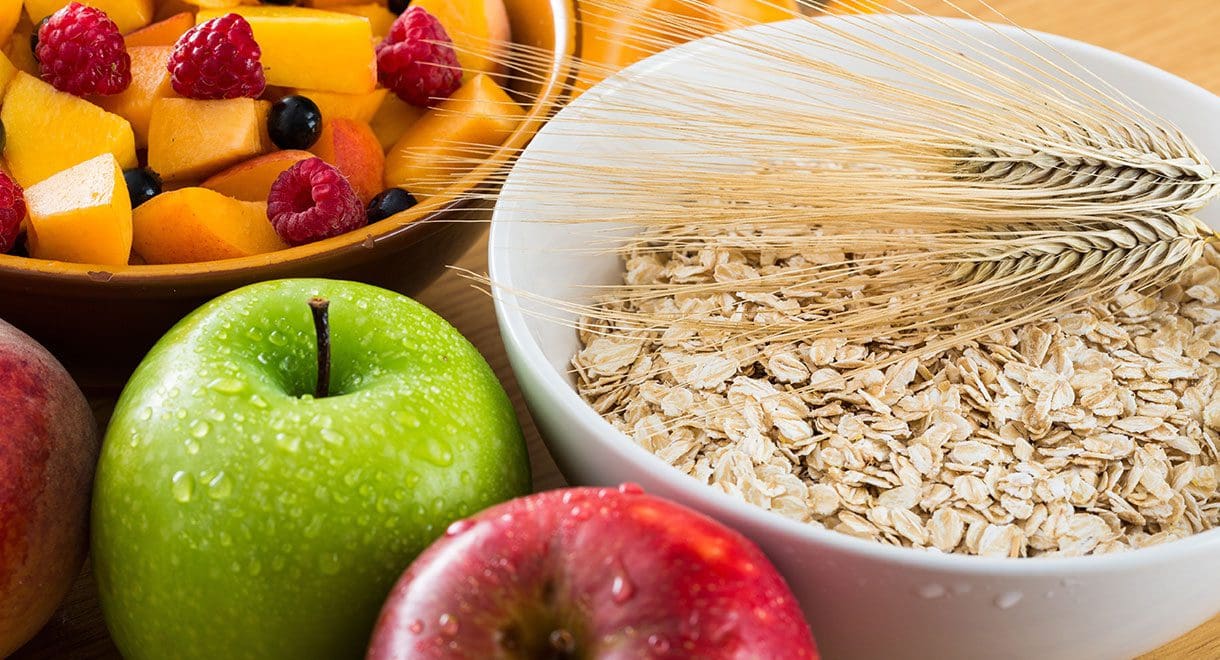5 fantastic facts you didn’t know about fibre
By Louise Belle BHSc (Nut Med)
People often underestimate the importance of fibre. They merely relate fibre to poop and prunes and don’t really give it much more thought. Fibre is basically the husky, indigestible part of a plant. There are two types of fibre; soluble and insoluble. Soluble fibre is the type that absorbs water and forms a gel-like substance and is found in chia seeds, flax seeds, psyllium husk, oat bran, berries and beans. Insoluble fibre adds bulk to the stool and is found in fruit and vegetable skin, wheat bran, rice bran, nuts and wholegrains.
1. Fibre naturally reduces cholesterol
Fibre, specifically soluble fibre helps to maintain healthy cholesterol levels. This is because the fibre is able to bind to the particles of cholesterol and transport them out of the body via bowel movements- kind of like a pickup truck, getting a load of unwanted material and dumping it elsewhere. Fibre can help to reduce the risk of cardiovascular disease and stroke by preventing the build-up of sticky plaque in the arteries (atherosclerosis).
2. Fibre helps to balance blood sugar levels
When you eat a meal containing a good amount of fibre, it slows down the absorption of sugar from the meal into the bloodstream. It’s like two lanes of traffic merging into one- it slows down. By making the absorption slower, there is less of a spike in blood glucose levels. Fibre can help to prevent against insulin resistance and type 2 diabetes by helping to stabilise blood glucose and insulin secretion.
3. Fibre promotes a healthy digestive system
This is an obvious one, but fibre really has amazing benefits for the digestive tract. It helps to maintain regular bowel movements and acts as an ‘intestinal broom’, scrubbing the walls of the digestive tract to remove leftover waste material. It feeds the good bacteria (flora) in the gut and helps to prevent against constipation, diverticulitis and irritable bowel syndrome (IBS). Fibre is particularly important as we age, to reduce the risk of bowel cancer.
4. Fibre promotes weight control
There are a few reasons why fibre can assist in maintaining a healthy weight. Firstly, diets that are high in fibre are generally lower in energy (calories) and therefore, are more likely to assist in healthy weight maintenance. Secondly, because fibre slows digestion and expands in your stomach, it will keep you fuller for longer, decreasing unnecessary snacking. Studies have shown correlations between high fibre consumption and healthy weight.
5. Fibre helps with detoxing
By helping to speed up the movement of wastes through the digestive tract, fibre helps to reduce your toxin exposure. Remember that your poop is full of toxins that need removing from your body, and if you aren’t doing a ‘number 2’ often enough, they sit in your bowel festering away and you end up reabsorbing them. Soluble fibre also acts like a sponge, absorbing toxins from the intestinal tract for removal.

Isn’t fibre fantastic! It does so much more for your health than making you poop and should really be incorporated into your regular diet. Women need to aim for at least 25 grams of fibre daily, whilst men need at least 30 grams. Fibretone is an excellent source of dietary fibre, combining psyllium husk with herbs and amino acids that help to support bowel, liver and gallbladder health.
See Dr Cabot’s books, Healthy Bowel Healthy Body for more information on how to improve your gut health and The Liver Cleansing Diet to provide you with a comprehensive liver detox program.









Leave A Comment